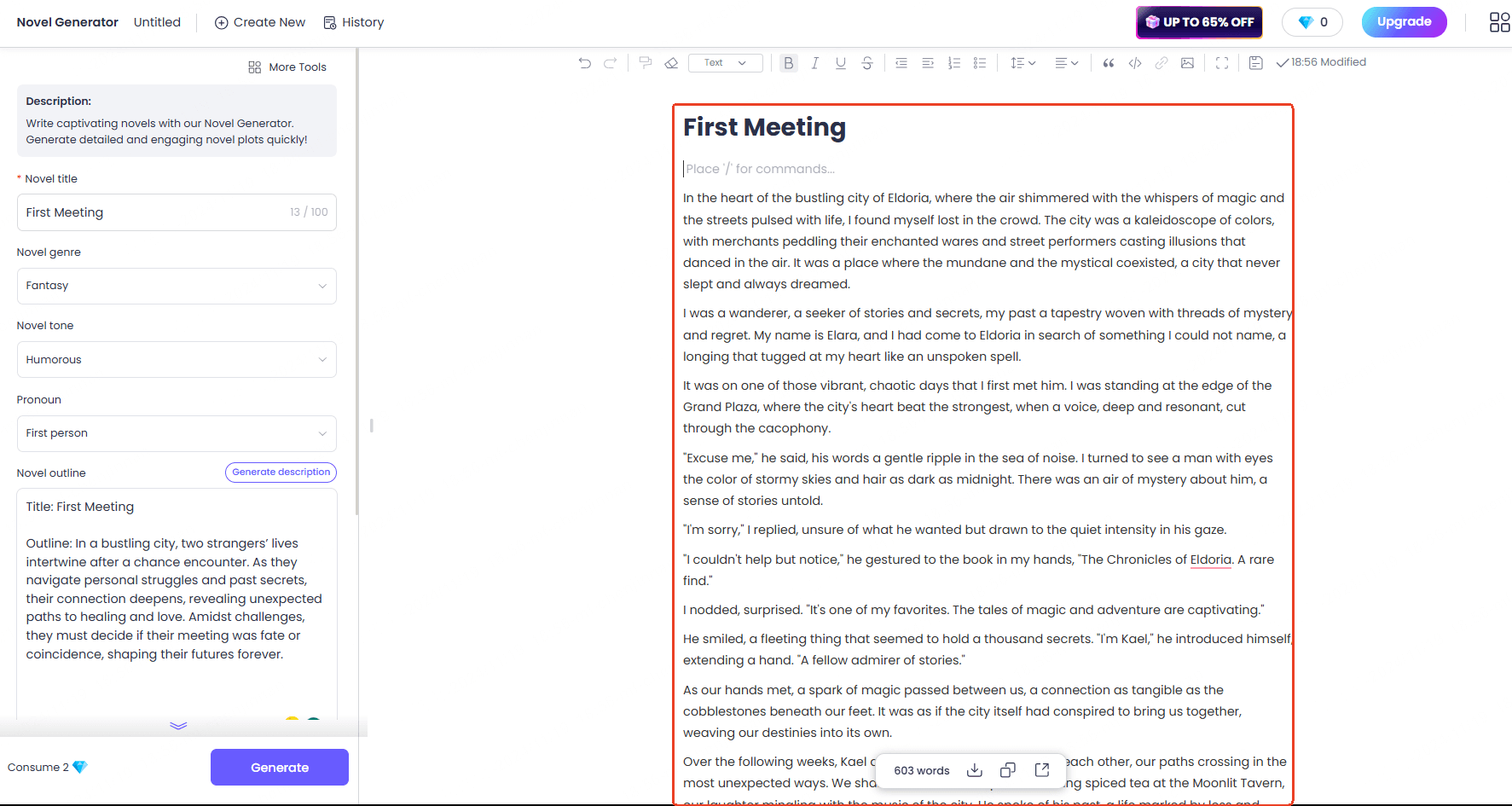Best Way for Easily Writing Your First Novel
Writing your first novel can feel like standing at the foot of a huge mountain, looking up at a peak that’s both exciting and totally intimidating. For many new writers, the dream of bringing a story to life can quickly turn into a mix of self-doubt, procrastination, and confusion. But writing a novel doesn’t have to be an overwhelming, anxiety-filled process. With the right approach and mindset, you can make your way through the creative journey with confidence, turning your ideas into a finished manuscript.
In this article, we’ll look at practical strategies that make the writing process smoother and help you build a rewarding writing habit. From creating a solid outline to setting small, manageable daily goals, these tips will help you break down obstacles and tap into your creativity.

In this article:
1 Creativity and Inspiration
Lack of Inspiration
Inspiration doesn’t always come easily. Sometimes, writers hit a “creative dry spell” where it feels impossible to come up with exciting plots or fully realized characters. This can lead to anxiety and a fear that they might not be able to finish the story they set out to write.
Idea Overload
On the flip side, sometimes too many ideas can become overwhelming. When inspiration floods in, writers can feel scattered, unsure where to begin or how to weave these ideas into a clear storyline.
2 Writing Skills
Expressing Ideas in Words
One of the main challenges is bringing scenes, emotions, and characters to life in writing. To create vivid imagery and emotional impact, writers need to have a strong grasp of language, rhythm, and tone. Too much or too little detail can both take away from the reader’s experience.

Structuring the Story
A compelling novel isn’t just about a good story—it also needs a solid structure. Planning out the beginning, middle, climax, and ending, with well-placed twists and suspense, takes patience, skill, and experience.
Writing Dialogue
Dialogue is a powerful tool for building character and moving the plot forward. Natural, authentic dialogue enhances the story’s realism and helps readers connect with the characters. But if it sounds stiff or doesn’t match the character’s personality, it can weaken the impact of the story.
3 Time Management
Staying Consistent with Writing
Writing a novel is a major time commitment. For those juggling work, family, and other responsibilities, finding a steady time to write can be challenging. Consistent writing is key to keeping the story’s flow and finishing it in a reasonable timeframe.
Avoiding Procrastination
Every writer encounters creative blocks or burnout, and procrastination is a common pitfall. Staying on track with writing progress requires discipline and setting achievable goals to keep moving forward, one step at a time.
4 Self-Doubt and Criticism
Perfectionism
Many writers hold their work to extremely high standards, wanting every line to be flawless. While this can lead to quality writing, it can also slow down progress or even cause writers to get stuck, hesitating to continue.
Fear of Feedback
Criticism is unavoidable after finishing a piece, and many new writers worry about whether their work will be accepted or face negative feedback. This fear can create hesitation and anxiety, making it hard to share their work with others.
5 External Distractions
Distractions
Modern life is full of distractions, from social media and TV to games and other entertainment. It’s easy to lose focus, and these distractions can not only eat up time but also disrupt a writer’s creative flow.
Life Pressures
Real-life responsibilities like family, work, and financial stress are real barriers to writing. These pressures can drain a writer’s energy and impact their mindset and the quality of their work.
6 Market and Publishing
Understanding the Market
Knowing what’s trending in the literary market and understanding what readers want can help writers position their work. But staying tuned to the market requires insight while maintaining a unique personal style to keep the work original.
Choosing a Publishing Path
In today’s publishing world, writers need to decide between traditional publishing or self-publishing and consider how to effectively promote their work. Choosing the right path can determine the reach and reception of their novel.
1 Improving Writing Skills
Writing is a journey where you're always learning and growing. It's not just about putting words on paper; it's about getting better at it all the time. You can boost your skills by reading different types of books, taking writing classes, or joining workshops. Also, connecting with other writers in groups or communities can give you helpful feedback and new ideas. These activities keep your writing fresh and exciting, helping you add more depth and creativity to your work.

2 Adapting to Change
The world of books and readers' tastes are always changing. To keep your writing relevant and interesting, you need to be open to these changes. This might mean trying out new genres, using different storytelling styles, or adding modern themes to your work. By keeping up with market trends and being flexible, you can make sure your stories connect with today's readers and stay appealing.
3 Story Structure
Using tried-and-true story structures can be a great help for writers. These frameworks give you a solid base to build your stories on and help you understand what makes a story engaging. By knowing how successful stories work, you can add creative twists and new angles when you use familiar structures with new characters or settings. This not only respects traditional storytelling but also sparks creativity and originality.
4 Character Depth
Creating characters with depth is key to telling a good story. One way to do this is to start with a character monologue. This lets you dive into your characters' thoughts and feelings, showing what drives them. By exploring your characters' minds, you can create richer, more complex personalities that move the story forward and connect with readers.
5 Motivation Matters
Knowing the difference between what a character wants and what they need is crucial for a gripping story. This difference creates tension and conflict, which are important for keeping readers hooked. By highlighting your characters' struggles, both inside and out, you can encourage readers to cheer for their growth, adding emotional depth to your story.
6 Signposting Progress
Clear signs of progress are important for keeping readers engaged. Whether it's through a character's journey or solving a mystery, showing movement toward a goal helps keep the story's pace. These markers guide readers through the story, giving them a sense of direction and keeping them interested in the outcome.

7 Mental Preparation
Before you start writing, doing some pre-writing activities can be really helpful. Things like brainstorming, outlining, or free writing can boost your creativity and focus. By getting mentally ready, you can approach your story with fresh ideas and be open to exploring new directions.
8 Adaptability
While having a structured plan for your story is important, being flexible is just as crucial. Writers should feel free to tweak story frameworks to fit their unique voice and vision. This flexibility ensures that your work stays true to your creative goals, making your storytelling more personal and impactful.
Try AI Novel Generator: The AI Novel Generator is a handy tool for writers that uses artificial intelligence to help create text, story ideas, character details, and even full story drafts. It's great for when you're stuck and need some inspiration or new plot twists. The AI can write short paragraphs, character dialogue, and scene descriptions. It can also help you outline your story's structure or create a basic draft that you can then polish and expand. While it won't replace your unique writing style, it's a powerful tool for support and guidance.

Writing your first novel can be a daunting experience filled with self-doubt, but by adopting effective strategies and a positive mindset, you can navigate the creative process with confidence and transform your ideas into a completed manuscript. Emphasizing practical approaches, such as outlining and setting achievable goals, can significantly enhance your writing journey.

AI Speech Writer

Pick Up Line Generator

Hook Sentence Generator | Hook Generator for Essay






































 AI Writer
AI Writer
 AI Image
AI Image
 AI Chat
AI Chat
 Email Writer
Email Writer
 Novel Writer
Novel Writer


 DeepSeek R1&V3
DeepSeek R1&V3
 GPT-4o & o3-mini
GPT-4o & o3-mini
 Claude 3.7 sonnet
Claude 3.7 sonnet
 Gemini 2.0 Pro
Gemini 2.0 Pro
 GPT-4o mini
GPT-4o mini











